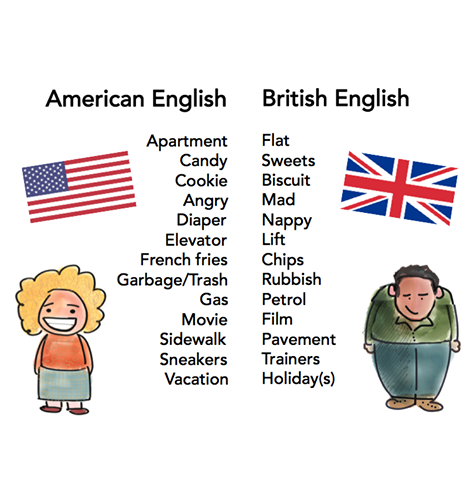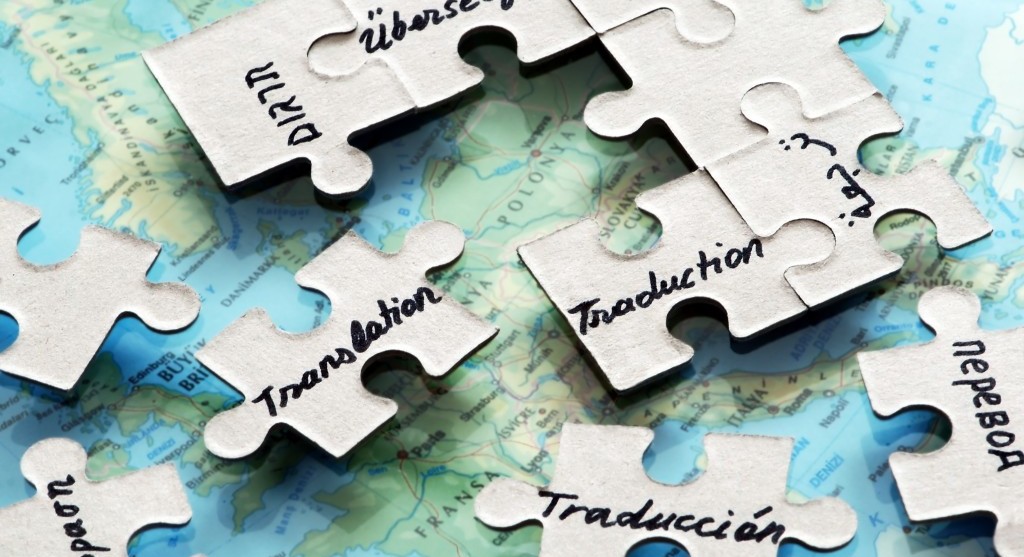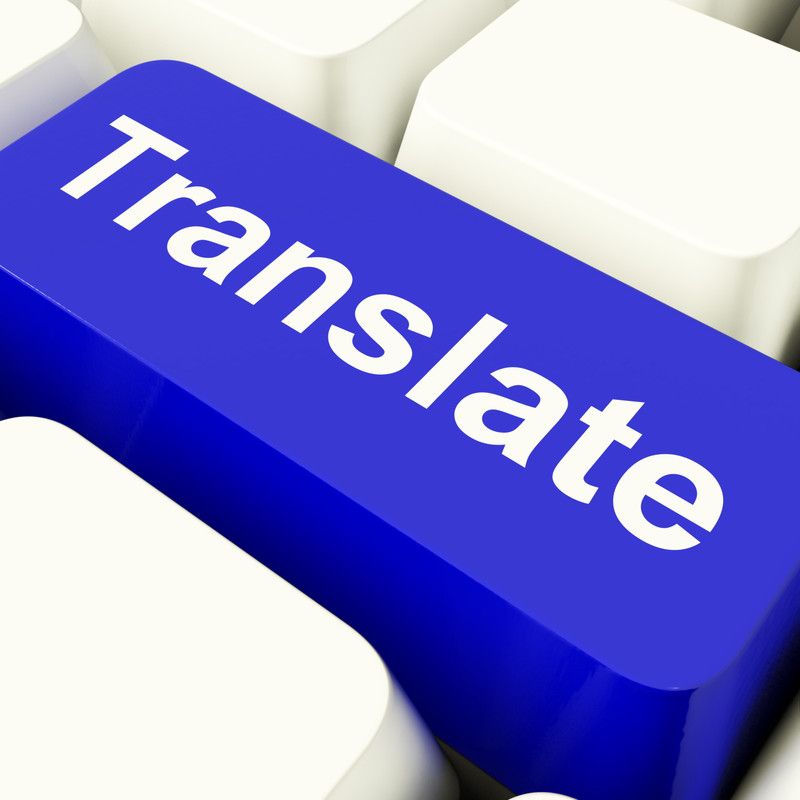The answer to this question is more complicated than you might think. The need for translations come up all the time in business, especially those operating internationally, but the reasons to need a translation can be quite varied. Read more “When do I need a translation?”
Can you learn a language in three months?
We see this claim repeated over and over again in pop-ups that appear in our browser or in YouTube, usually originating from language learning platforms or blogs. But is it true? The short answer: no. The slightly longer answer: sort of. Perhaps an explanation is required.
Which languages do you think are the most challenging?
As English speakers we are really spoilt, as pretty much the whole world is trying to learn English, and where large parts of the world have not yet fully succeeded in the endeavour, they are well on the way. So this takes the pressure off as native English speakers, which might be seen as a good thing. Unfortunately however, the all-too-common result on our part is the tendency toward extreme laziness when it comes to language learning! After all, why bother when the rest of the whole is beating a path to our door and doing all the work to make themselves understood.
Read more “Which languages do you think are the most challenging?”
Can I get my corporate blog translated?
These days a corporate blog is a widely-used means of generating quality content of interest to our target audience. Blogs contain keywords of popular Google searches and can be about pretty much any topic under the sun. The trick is that they be an interesting read in their own right, thereby attracting the type of potential customers that we want (in the case of a business), but also that they appear high in search-engine rankings by virtue of the use of keywords.
Tourism Translations
All of us have seen those lists of “top 10 translation fails” on Buzzfeed or similar pages, with their ridiculous and hilarious mis-translations from one language to another, but no-one actually wants their business to be the butt of these jokes, or appear on the lists. While it’s very amusing to see “ducha” translated as a “douche” (who wants to find one of those in their room, right?) or “exit” as “’exito” in Spanish [success, not really what people are expecting to find at the end of the hotel corridor], and “stir-fried wikipedia” sounds like an interesting item to find on the menu, if your business is in the tourism industry, you want to limit these translation mistakes to the internet where they belong.
The art of humour translation
Humour is a notorious area of difficulty in translations, as any translator will tell you. So much of humour is derived from double meanings and wordplay, small and subtle cultural references and so forth, which can often mean that it is (or can appear to be) simply untranslatable. This is not hard to understand since a great deal of humour has to do with the language itself, the way one word sounds like another or calls to mind certain associations, which belong strictly within the universe of that language and the culture related to it.
Professional Croatian Translator: Nadira Ljevaković Garić – Part 2
Based on the few months I’ve been working with you, I can only say that you are one of the best clients I’ve ever had. I prefer long-term cooperations and BigTranslation offered me that very thing. It really is a pleasure to be a part of a professional team where you always get your questions answered and, at the same time, have the freedom to organize and decide the amount of work you accept – this is definitely something that makes BigTranslation stand out from other companies.
In what capacity do you work with BigTranslation and what was it that made you choose the company? In your opinion, what makes it stand out from other companies?
Based on the few months I’ve been working with you, I can only say that you are one of the best clients I’ve ever had. I prefer long-term cooperations and BigTranslation offered me that very thing. It really is a pleasure to be a part of a professional team where you always get your questions answered and, at the same time, have the freedom to organize and decide the amount of work you accept – this is definitely something that makes BigTranslation stand out from other companies.
 What essential qualities or skills should a translator possess? What’s your ‘motto’ on translation, if you like?
What essential qualities or skills should a translator possess? What’s your ‘motto’ on translation, if you like?
In my opinion, working as a freelance translator is not as easy as it may seem. The knowledge of source and target language is essential. Translation goes way beyond being able to speak both the languages you’re working on. One needs to be able to flawlessly transfer both syntax and semantics from one language to another and make the final “product” as natural as the source it came from.
The process of translating itself aside, you need to organize your time, especially if you are working for many clients at the same time. You need to plan, communicate to clients, look for new ones and only then you do the translation work. Many people tell me that I’m having super easy time, a great job where I can work whenever I want to without realizing that I, myself, do the same amount of work which is distributed to 3-4 people in the companies they work in. My motto is: „Think, translate, fascinate“. The greatest pleasure I can have is my clients’. ☺
Imagine a world without translators. What would it be like?
I’ve recently read an interesting story. A professor from the USA was giving some lectures in Japan and started one of them with a joke that lasted a few minutes. After he told the joke in English, he waited for the translator to do his job. The translator only talked for a few seconds and the audience burst into laughter.
After the lecture, the professor asked the translator how she managed to convey all the humour from his joke in only a few seconds. She shrugged and said: “I told them our American guest had just told a funny joke and that all should laugh.”
Most things that we use and buy daily go through the process of language adapting first which is obviously done by translators. Imagine you need to cook for some very special guests and go to a supermarket to buy spices, among other things. How spicy would your lunch be if you didn’t know which spices you used? That’s just a small example how important translation is.
In the bigger picture, translators are the ones connecting the world. Be it culture, finance, politics, education or any other crucial aspect of human existence and growth – none of it would be possible without translation.
Website translation: Making Vissually More Visible
Vissually wanted to expand to the French and British market, and so using our expert team we were able to translate their website into French and English efficiently, allowing customers from all over Europe to make the most of Vissually’s expert services, while Vissually can benefit from international business. Good news all round!
Vissually is a company which offers creative solutions to boost the sales of the brands they work with. With a carefully chosen team of engineers, graphic designers and printers, they create attractive products in countless formats, in order to meet their customers’ requirements and make them stand out among their competitors.
As with many companies, a lot of Vissually’s business is generated from their website. They have a successful website which is key to successful business, but Vissually have come up against a challenge which many successful businesses face – their market is limited to Spanish customers. They wanted to expand their business to reach out to a wider audience, and to do this, they needed to translate their website into different languages. To provide this important service, they chose BigTranslation. Here at BigTranslation we offer a website translation service into over 24 different languages, giving your business the opportunity of global success.
The key elements of website translation
What makes us unique is that we use native translators in order to make any translation sound as natural as possible. Native translators also know and understand the market needs and requirements of the audience for which they are translating, and are able to adapt the translation accordingly.
We also realise that no matter how good the quality of the translation may be, it has no relevance if it can’t be found on online searches. This is why we offer a SEO translation service, to allow your website to maintain high search engine visibility during searches from various countries. We specify key words and expressions which will increase the amount of users visiting the website.
Vissually wanted to expand to the French and British market, and so using our expert team we were able to translate their website into French and English efficiently, allowing customers from all over Europe to make the most of Vissually’s expert services, while Vissually can benefit from international business. Good news all round!
International Translation Day
Since 1991, every year on the 30th September, translators from all over the world join this celebration to promote translation as a profession, and each year a different theme is chosen. In the past the themes have included Language Rights and The Changing Face of Translation and Interpretation.
Each year, the 30th September marks a very important event in the world of translation-International Translation Day, in celebration of the patron saint of translation, St. Jerome.
Where Did It All Start?
The Bible is by far the most translated text in world history, and has been translated into over 2800 languages. St. Jerome was one of those to translate this famous text, translating it into Latin, the style spoken and written by the people of his time, despite being well versed in Classical Latin. Jerome died peacefully in 420, on the 30th September, and it is on this day that the translating world comes together to celebrate translation across the globe.
International Translation Day As We Know It Today
Since 1991, every year on the 30th September, translators from all over the world join this celebration to promote translation as a profession, and each year a different theme is chosen. In the past the themes have included Language Rights and The Changing Face of Translation and Interpretation. This year, the theme which was proposed by the American Translators Association (ATA) and is Translation and Interpreting: Connecting Worlds. The idea behind this theme is to celebrate how translation brings enables us to share the worlds of business, science, medicine, law, etc.
Feeling Artistic?
In 2012, the International Federation of Translators introduced a poster competition to the event, allowing member associations and other people with an interest in translation to submit posters promoting International Translation Day. The motif of the poster must be linked to the theme chosen for the year, and the design must accommodate two different languages. The winner of the poster competition receives the International Translation Day prize, which consists of a certificate and/or plaque, and where possible their logo will appear on the poster.
This event is a great way of celebrating the importance of translation, and promoting it across the globe!
And what about us?
Here at BigTranslation we have celebrated it the best way possible: translating! Of course every good celebration needs delicious food, especially when it’s our international team! We hope you have enjoyed the day as much as we have, and that it helped you to realise how essential translation is.
Linguistic variations: Minor Mistakes, Major Consequences
It is well known that English is among the most widely spoken languages in the world, along with Chinese (Mandarin) and Spanish, but we never specify which English we are referring to. Although we think of English as being one universal language, it actually has many variations across the globe.
It is well known that English is among the most widely spoken languages in the world, along with Chinese (Mandarin) and Spanish, but we never specify which English we are referring to. Although we think of English as being one universal language, it actually has many variations across the globe. This is why it is important to bear in mind your target audience when you are translating – because one word may have two very different meanings depending on where you are from.
Do you dare to assume linguistic variations are insignificant?
For example, if you are giving an address to the first floor of a building, an American would go to the ground floor of a building, whereas a British person would be waiting one floor above.
Another issue may arise when a party invitation has the instructions fancy dress. At an American party this would mean formal dress, black tie and ball gowns, but a British person could turn up in any outfit from a Mickey Mouse costume to a Superman cape – not a mistake you want to make!
Another common error is the difference with the word pants in the UK and the USA, as in the USA it means trousers, whereas in the UK it means underwear. Another piece of clothing American’s tend to find confusing is  the jumper. Although to British people this is quite clearly an item to keep you warm in winter, in America a jumper is somebody who commits suicide by jumping off a building or bridge. Fortunately the popularity of Harry Potter, and particularly Ron Weasley, across the globe has helped Americans to understand the commonly used British meaning!
the jumper. Although to British people this is quite clearly an item to keep you warm in winter, in America a jumper is somebody who commits suicide by jumping off a building or bridge. Fortunately the popularity of Harry Potter, and particularly Ron Weasley, across the globe has helped Americans to understand the commonly used British meaning!
But perhaps the most embarrassing slip up you could make is with the word “rubber”. In Britain, this is a commonly used classroom object for erasing mistakes, and nobody would bat an eyelid if a 7-year old said “Please may you pass me the rubber”, but in America this would seem very strange, as rubber in America means condom!
Native translators, and say goodbye to misunderstandings!
It is clear to see that for different audiences across the globe, the same word may have very different meanings and connotations depending on its variation, which is why when doing a translation it is of the utmost importance to use experienced translators who know their language and their target audience to avoid these simple but significant errors.










